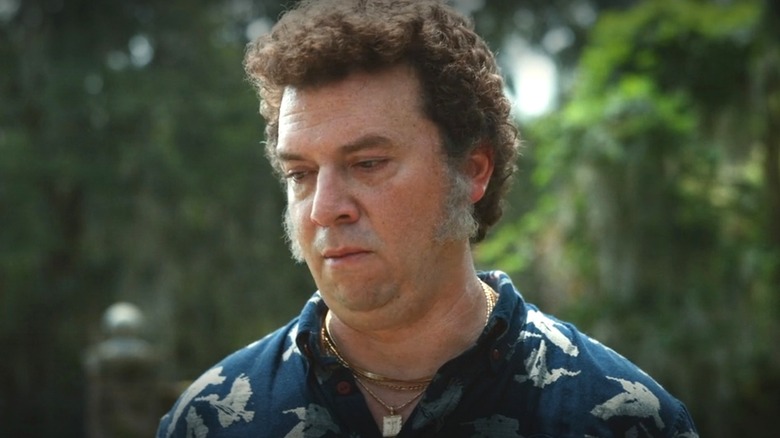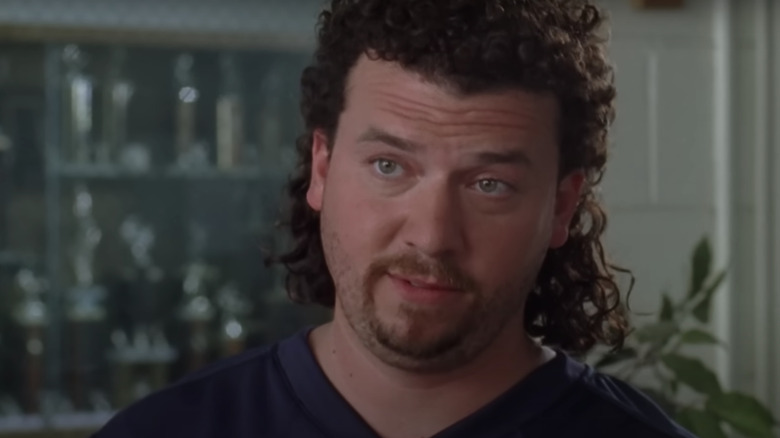The Righteous Gemstones' Unique Feel Comes From Danny McBride's Dismissal Of Genres
Season 3 of "The Righteous Gemstones" is coming soon, with the first two episodes set to air on HBO on June 18. Seasons 1 and 2 of the Danny McBride-created series about a family of ethically dubious megachurch pastors from South Carolina were equal parts harrowing and humorous. For example, family patriarch Eli (John Goodman) faces an assassination attempt and his eldest son Jesse (McBride) fights to keep his wife, Amber (Cassidy Freeman), from leaving him over the course of both seasons.
Among those dramatic turns, the series is filled with clever writing and hilarious caricatures, including BJ (Tim Baltz), the comically awkward husband of Eli's daughter, Judy (Edi Patterson), as well as Eli's rival preacher and brother-in-law, "Baby Billy" Freeman (Walton Goggins), who still uses that moniker despite the fact that he is well into his 60s.
In an interview with Vulture, McBride said he tried to craft "The Righteous Gemstones" without keeping to any standard notions of how TV shows are categorized. "You know, I never think about the genre," McBride said. "I feel like it's a label that people put on things ... Why limit yourself to the traditional tools of a genre? Why not use all the tools of any genre as long as you can make them work?"
Eastbound and Down also defied easy genre labeling
For Danny McBride and HBO, mixing comedy and drama has become a pattern. One of his previous series for the network also straddled the line between the two genres.
On "Eastbound and Down," McBride played Kenny Powers, a former major league baseball star with anger management and substance abuse issues who goes to Mexico to try and resurrect his career. He explained that after pitching the series to HBO, he felt somewhat pigeonholed by a specific suggestion from network executives, but held fast to his genre-busting ways.
"HBO wanted us to look for a cinematographer; part of the notes were like, 'We need to find a cinematographer that can shoot comedy,'" McBride told Vulture. "To us, what that meant was to not make it look as good; they don't want it to be moody, they want it to be bright."
He went on to explain that he and series co-creator Jody Hill felt that just because the series was meant to be funny did not mean they should give it short shrift when it came to production value. "Why not invest in the show, or the soundtrack, or the production design if it all ultimately makes the world more interesting?" McBride asked.

